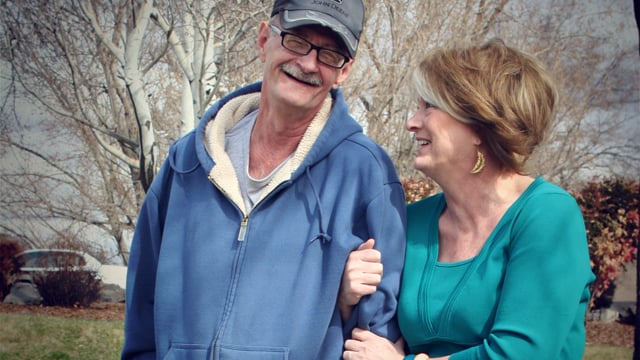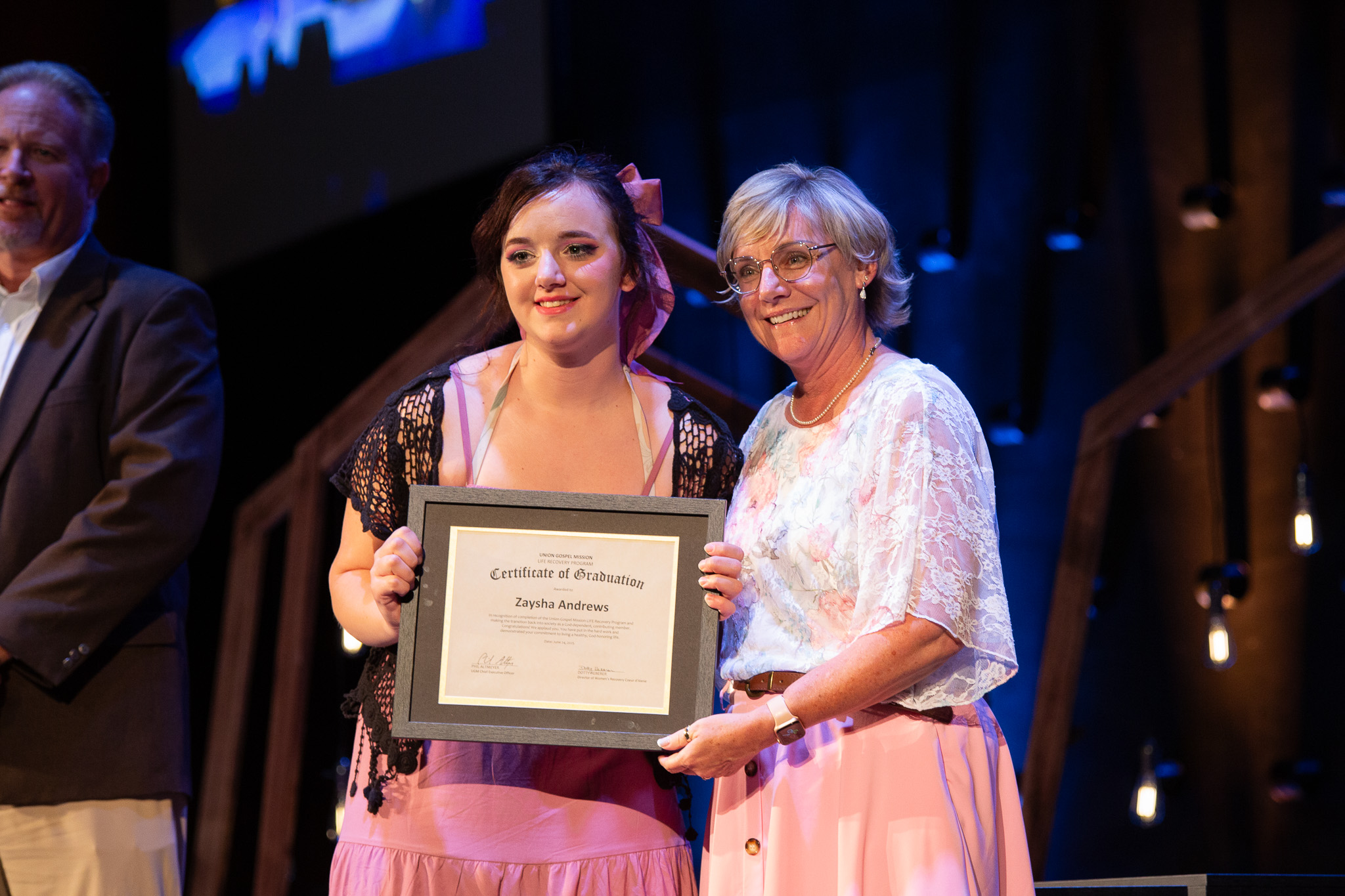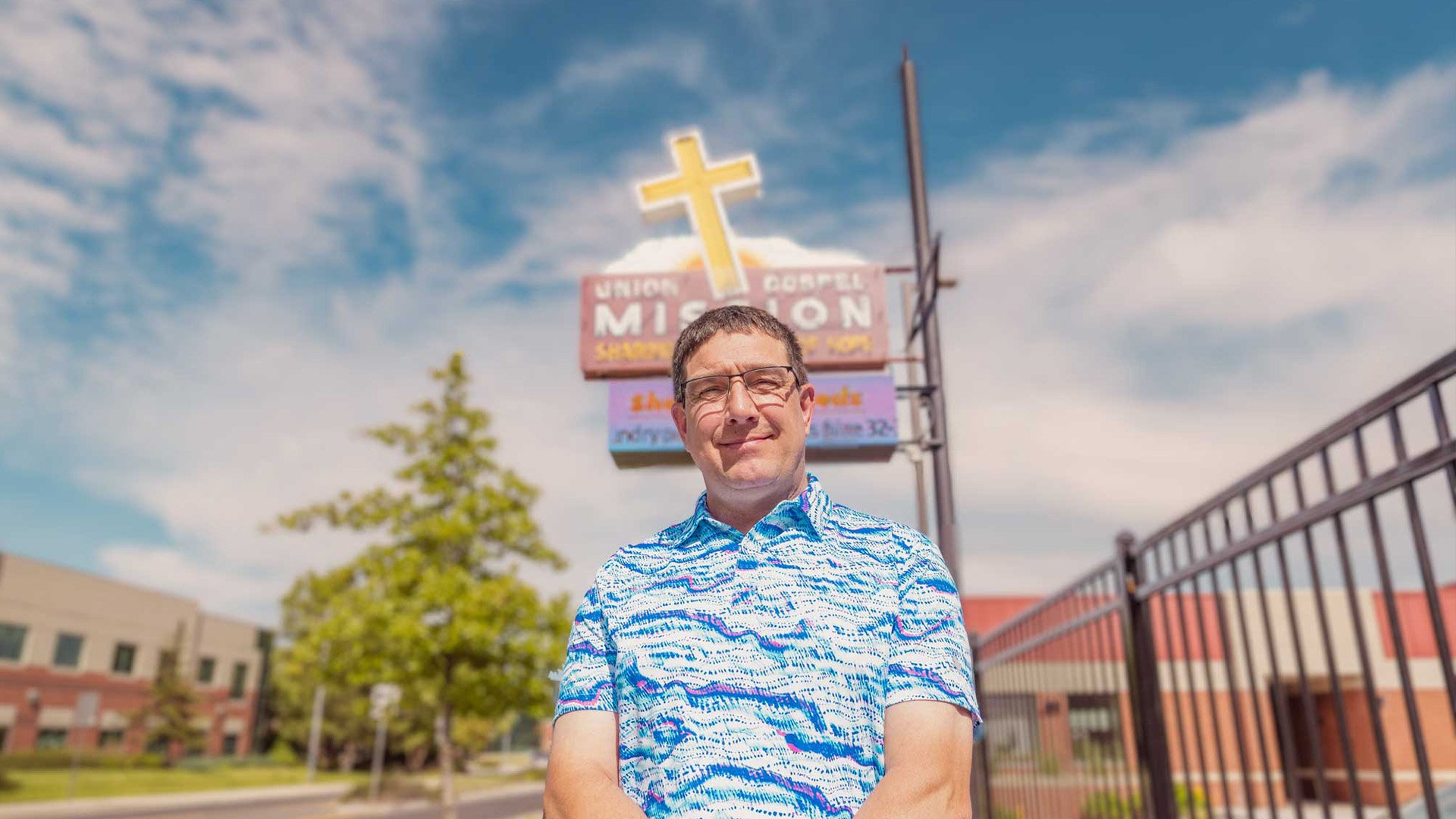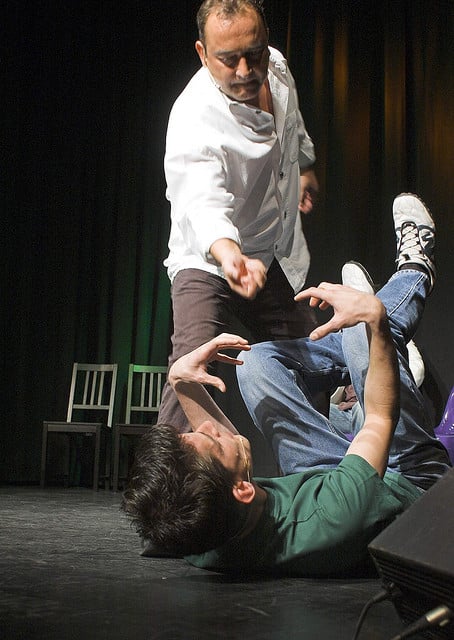2 min read
Gospel-Centered from the Start
“Let us hold unswervingly to the hope we profess, for He Who promised is faithful…Jesus Christ is the same yesterday, today, and forever.” (Hebrews...
3 min read
 Barbara Comito, former marketing director
:
April 1, 2014
Barbara Comito, former marketing director
:
April 1, 2014
This is the second of two posts on UGM’s self-evaluation process. The first, “The courage to ask why I do what I do” explains how the process plays an integral role in recovery. This post looks at the benefits of encouraging staff and volunteers to participate in the process, as well.
One of the dangers in working for a ministry like the Union Gospel Mission is the tendency to develop an us-versus-them mentality. We have jobs, houses, in-tact families. They are unemployed, homeless, and often alone – their families fractured or non-existent. We use our paychecks to buy our clothes and food according to our tastes and style. They wear and eat what they are given. We have cars to drive. They walk or take the bus. We feel good about ourselves because of our accomplishments. They feel shame and humiliation because of their failures. We package our images to portray confidence and success in marriage, parenting, career and the Christian walk. Their packages are torn; their insides exposed. We feel like we are in control. They know they are not.
If you want to feel good about yourself, just stand next to that homeless guy, right? Except I don’t think that’s really true. It has not been the case for me.
In the six years I’ve been interviewing our guests and writing their stories, I have found myself empathizing with their pain, identifying with their struggles and admiring their resilience. Rather than feel great about how much better my life is than theirs, I feel challenged to look a little deeper than external success and reveal a bit more of my true self.

Now, let me be clear. I’ve never been homeless, and I don’t want to pretend for even a few keystrokes that I know what it’s like to sleep rough or go hungry or be abused and abandoned. Because I don’t. Not even a little. And I don’t want to minimize the pain and suffering our guests have experienced.
I do want to say I have seen beauty emerge from their pain, and their hard work has encouraged me to move into my own pain.
Which brings us to the self-evaluation process. And, tangentially, addiction. I have come to see that, while I do not struggle with drugs or alcohol, I do use other substances and activities to ward off unwanted thoughts and feelings. I shared this mini-revelation with one of the counselors on the UGM treatment team, and he invited me to do the self-evaluation below.
It’s been a little while since I shared this at the men’s community meeting, so I can’t remember the exact questions the men asked. Here’s what I do remember: A receptivity devoid of judgment. No shock, no joy in my failure, just an overwhelming sense of charity and acceptance. I was among friends. 1) What did you choose to do?
1) What did you choose to do?
I chose to use food and television as an escape.
2) What did you want?
To be happy. To distract myself from feelings of boredom, anger, dissatisfaction with work, feeling undervalued, relationship struggles. To escape.
3) What were you thinking?
A pint of Haagen-Dazs Swiss Vanilla Almond ice cream and a season of Downton Abbey will make me happy, distract me from the troubles at hand.
4) What were the results of your choices?
In part, it works. I do take pleasure in food. I am distracted. But it also means I haven’t dealt with the real issues. I’m not really living my life. I’m avoiding it. My unhappiness is alleviated temporarily but not in any lasting way. I’ve eaten food I do not need. I gain weight or cannot lose it, which makes me unhappy with myself, and the cycle begins again.
5) What effect did your choice have on the environment?
My teenage girls see my example, and they, in turn, think food is a solution to unhappiness, boredom, etc. Also, I miss the opportunity to share and work through my struggles with the people who love me. I am often physically present but emotionally absent.
6) How did your choice affect your relationship with Christ?
I do not turn to him and pour out my heart. Instead, I use food as a bandaid. I close myself off and try not to face or think about the unhappiness. My relationship with Christ doesn’t grow because I’m not bringing “my stuff” to him.
7) If necessary, what is your plan to change?
When I am angry or disappointed or blue, I will try to share my feelings with someone. I will try to stay present – at least for five to ten minutes – with the disappointment, the anger or the disillusionment.
It's not that the self-evaluation process cured me, but I'm happy to say, I've made progress. I still feel the urge to escape, and I still use food and television as a means of avoiding unwanted feelings on occasion, but I don't do it as often or as naturally. Sometimes I choose to stay present with the yucky feelings. I journal and I pray. Sometimes I have the courage to share what's churning within me with someone safe. I am in recovery.
- Barbara Comito, UGM staff writer
We're excited to introduce a new video series: The Counselor's Couch. In this series, UGM professionally-trained counselors will address issues that impact all our lives - conflict management, relationships, anxiety, addiction, and more. Click on the link below for the first installment. Master's-level counselor John Dunne explains the progressive nature of addiction.

2 min read
“Let us hold unswervingly to the hope we profess, for He Who promised is faithful…Jesus Christ is the same yesterday, today, and forever.” (Hebrews...

9 min read
To celebrate 75 years of serving the Inland Northwest, we are spending the year remembering our history and the faithfulness that built us and...

2 min read
In 2026, Union Gospel Mission Inland Northwest is approaching our 75th Anniversary! This is a milestone that invites gratitude and reflection, and...

The 2025 Life Recovery commencees have journeyed through deep valleys of struggle and hardship. Yet, with resilience and grace, they have emerged...

“The enemy got his hooks into me early. I’d been using for roughly 40 years.”

When I say “counseling,” what do you picture? Most of us probably imagine two people in a quiet room, seated in comfortable chairs, talking. You’ve...